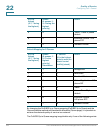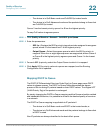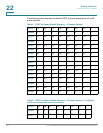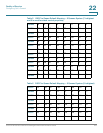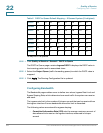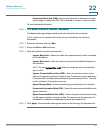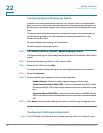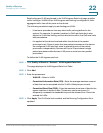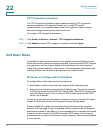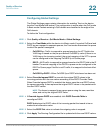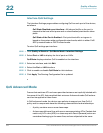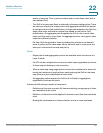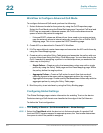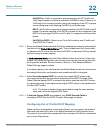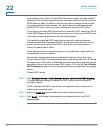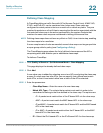
Quality of Service
QoS Basic Mode
427 Cisco Small Business 300 Series Managed Switch Administration Guide
22
TCP Congestion Avoidance
The TCP Congestion Avoidance page enables activating a TCP congestion
avoidance algorithm. The algorithm breaks up or avoids TCP global
synchronization in a congested node, where the congestion is due to various
sources sending packets with the same byte count.
To configure TCP congestion avoidance:
STEP 1 Click Quality of Service > General > TCP Congestion Avoidance.
STEP 2 Click Enable to enable TCP congestion avoidance, and click Apply.
QoS Basic Mode
In QoS Basic mode, a specific domain in the network can be defined as trusted.
Within that domain, packets are marked with 802.1p priority and/or DSCP to signal
the type of service they require. Nodes within the domain use these fields to
assign the packet to a specific output queue. The initial packet classification and
marking of these fields is done in the ingress of the trusted domain.
Workflow to Configure Basic QoS Mode
To configure Basic QoS mode, perform the following:
1. Select Basic mode for the system by using the QoS Properties page.
2. Select the trust-behavior using the Global Setting page. The device supports
CoS/802.1p trusted mode and DSCP trusted mode. CoS/802.1p trusted mode
uses the 802.1p priority in the VLAN tag. DSCP trusted mode use the DSCP
value in the IP header.
If there is any port that, as an exception, should not trust the incoming CoS mark,
disable the QoS state on that port using the Interface Settings page.
Enable or disable the global selected trusted mode at the ports by using the
Interface Settings page. If a port is disabled without trusted mode, all its ingress
packets are forward in best effort. It is recommended that you disable the trusted
mode at the ports where the CoS/802.1p and/or DSCP values in the incoming
packets are not trustworthy. Otherwise, it might negatively affect the performance
of your network



